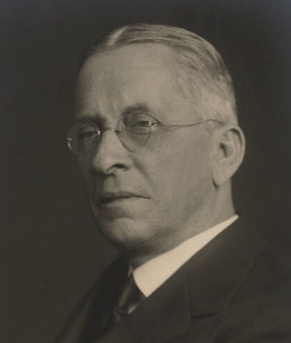Donald Charles Cameron (colonial administrator) facts for kids
Quick facts for kids
Sir Donald Charles Cameron
|
|
|---|---|

Cameron in 1932 by Walter Stoneman
|
|
| Governor of Tanganyika | |
| In office 1925–1931 |
|
| Preceded by | Horace Byatt |
| Succeeded by | George Stewart Symes |
| 4th Governor of Nigeria | |
| In office 1931–1935 |
|
| Preceded by | Graeme Thomson |
| Succeeded by | Bernard Henry Bourdillon |
| Personal details | |
| Born | 3 June 1872 Georgetown, British Guiana |
| Died | 8 January 1948 (aged 75) London, United Kingdom |
| Profession | colonial administrator |
Sir Donald Charles Cameron (born June 3, 1872 – died January 8, 1948) was an important British leader. He served as a governor in two African countries. First, he was the governor of Tanganyika. This was a territory managed by Britain after World War I. Later, he became the governor of Nigeria.
Contents
Life and Work of Donald Cameron
Early Life and Career
Donald Cameron was born on June 3, 1872. His birthplace was British Guiana, which is now a country called Guyana. His father was a sugar planter. Donald went to school in Dublin, Ireland. He did not go to university.
In 1890, he started working as a clerk. This was for the government in British Guiana. In 1904, Cameron moved to Mauritius. He worked there as an assistant to the Colonial Secretary. In 1908, he moved to Southern Nigeria. There, he worked closely with Sir Frederick Lugard. Cameron learned a lot from Lugard's ideas. These ideas were about "indirect rule." This meant letting local leaders manage their own areas. The British would guide them from behind the scenes.
Governor of Tanganyika
In April 1925, Cameron became the second governor of Tanganyika. Tanganyika was a territory in East Africa. It was managed by Britain after World War I. This was part of a League of Nations mandate. He took over from an acting governor.
In 1926, the governor of British Kenya, Sir Edward Grigg, wanted to unite the British colonies in East Africa. These included Kenya, Uganda, and Tanganyika. The governor of Uganda supported this idea. However, Governor Donald Cameron of Tanganyika strongly disagreed. He believed it would not be fair to the African people. He worked hard to make sure that no land in Tanganyika was taken from native Africans. He prevented it from being given to white settlers. Cameron won this argument.
Cameron also disagreed with Grigg on other matters. For example, they had different ideas about cultural practices. Grigg tried to force people to stop certain traditions in Kenya. He made them illegal and arrested those who continued them. Cameron thought this approach was too harsh. He believed it would make people dislike British culture. He felt that persuasion and patience were better. He said that trying to force changes would cause people to reject British help.
Governor of Nigeria
From 1931 to 1935, Sir Donald Cameron served as governor. He was also the commander-in-chief of Nigeria. He continued to apply his ideas of fair governance.
Personal Life
In 1903, Donald Cameron married Gertrude Gittens. Her father was also a sugar planter. They had one son together. Sadly, their son died in an aircraft accident in 1941. Donald Cameron retired from his work in 1935. He passed away on January 8, 1948, in London. He was 75 years old.
 | Sharif Bey |
 | Hale Woodruff |
 | Richmond Barthé |
 | Purvis Young |

